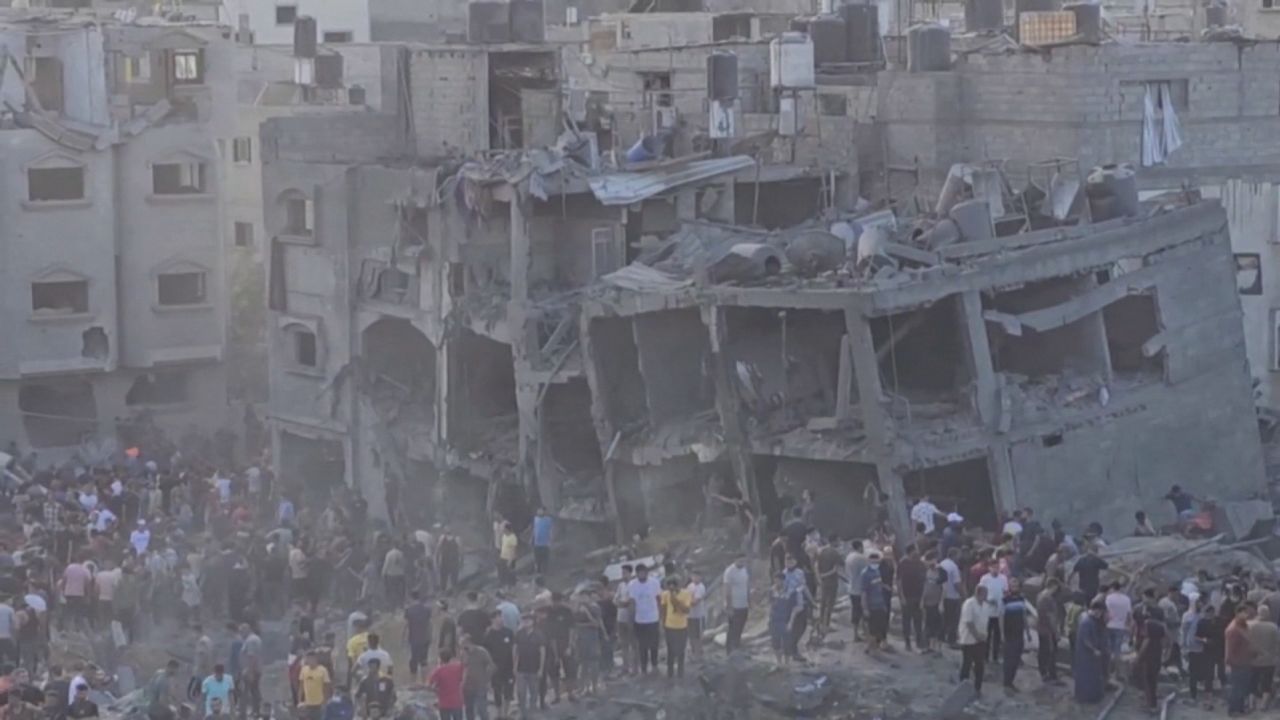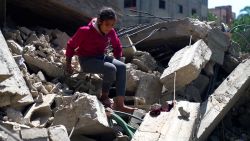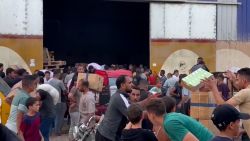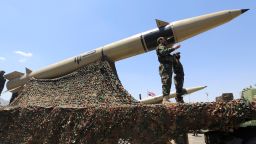The Israeli army began its full ground operation in Gaza on Friday, moving tanks, bulldozers, infantrymen and combat engineer units into the Strip.
But rather than make any quick advance on Gaza City, Israeli forces so far appear to have moved only slowly towards the enclave’s largest population center.
Drawing on videos and photos from open and official sources, as well as reporting from CNN teams on the ground, it appears as though Israeli forces crossed the border in three main locations.
The first is in the northwest corner of the strip. A video released by the Israel Defense Forces (IDF) on Saturday morning showed bulldozers pushing through sand very close to the seashore. A breach in the perimeter fence, through which Israeli vehicles appeared to have entered Gaza, is clearly visible.
Satellite imagery taken on Monday also showed several breaks in the border wall and vehicle tracks, where Israeli forces had crossed into northwestern Gaza before proceeding south on the beach and through farmland.
There is also evidence of Israeli forces close to the sea further south. On Sunday a video that circulated on social media showed Israeli soldiers waving a flag from the roof of a resort hotel, geolocated by CNN to Atatra, which lies about two miles south of the perimeter fence.
On Tuesday, photos released by the Israeli army showed soldiers even deeper into the Strip, just to the north of the Al Shati, or Beach, refugee camp, which would put them only three miles or so from the centre of Gaza City.
A second point at which Israeli forces appear to have entered Gaza is from the northeastern corner of the Strip near the town of Beit Hanoun, according to footage and satellite imagery. Video distributed by the Israeli army and geolocated by CNN shows dozens of soldiers advancing on foot across sandy terrain and, in a different clip, a bulldozer pushing through sandy soil to create a lane free from IEDs (improvised explosive devices).
Videos show deserted buildings that have sustained massive damage from Israeli aerial and artillery strikes ahead of the ground operation. There is no visible presence in the footage of civilians or Hamas militants, indicating people had fled or withdrawn before the Israeli military arrived. Even so, a CNN team just a mile or so away on the Israeli side of the border reported hearing sporadic machine gun fire, and on Tuesday morning multiple explosions from the same direction.
The CNN team reported the number of Israeli military vehicles inside the perimeter appears to be increasing, as the IDF appears to have expanded the ground operation once again.
Israel Ziv, a retired Israeli general, told CNN that one of the army’s key strategies for manoeuvring was to effectively change the surface area it was fighting on. “All the infrastructure, we destroy that ahead of time. We are doing that both by air and in ground capacity, so manoeuvring is not within the streets, but it’s more in an open area, on the ruins,” he said.
Finally, another piece of video evidence, which surfaced on Monday, points to a possible third entry point about 10 miles to the south, along the eastern perimeter. The video, filmed by freelance Palestinian journalist Yousif Al Saifi, showed an Israeli tank opening fire on a car on the main Salah Al Din road, which runs the length of the Strip.
The video was geolocated by CNN to just south of the Netzarim junction, named after a former Israeli settlement, and likely regarded by Israel as a strategic location to hold by if it wants to divide the northern part of Gaza from the south.
The junction lies just to the southeast of Gaza City and is not far from Wadi Gaza, the waterway that Israel has been telling Gazans to relocate to the south of, in order to be more safe from Israeli attacks.



















